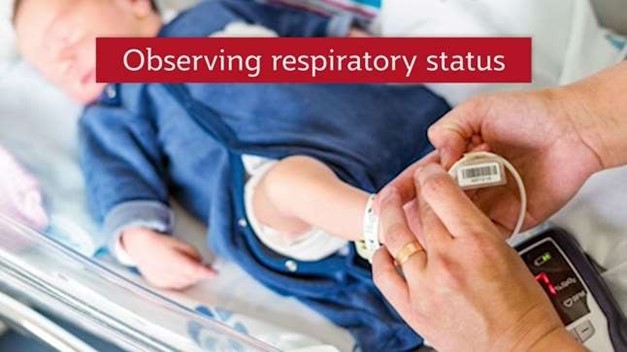A nurse is preparing to administer immunizations to a 3-month-old infant.
Which of the following is an appropriate action for the nurse to take to deliver atraumatic care?
Provide a pacifier coated with an oral sucrose solution prior to the injections.
Use a 20-gauge needle for the injections.
Apply eutectic mixture of local anesthetics (EMLA) cream immediately before the injections.
Inject the immunizations into the deltoid muscle.
The Correct Answer is A

Oral sucrose solution has been shown to have analgesic effects and can help reduce pain and discomfort in infants during procedures such as immunizations.
Choice B is wrong because Use a 20-gauge needle for the injections is not an answer because a 20-gauge needle is larger than the recommended size for infant immunizations.
Choice C is wrong because Apply eutectic mixture of local anesthetics (EMLA) cream immediately before the injections is not an answer because EMLA cream needs to be applied at least 1 hour before the procedure to be effective.
Choice D is wrong because Inject the immunizations into the deltoid muscle is not an answer because the deltoid muscle is not recommended for infants under 12 months of age.
Nursing Test Bank
Naxlex Comprehensive Predictor Exams
Related Questions
Correct Answer is C
Explanation
Pad the side rails of the crib.

Padding the side rails of the crib can help prevent injury if the infant experiences seizures, which can be a symptom of bacterial meningitis.
Choice A is wrong because infants with bacterial meningitis may be sensitive to noise and light, so keeping the television on may not be appropriate.
Choice B is wrong because range of motion exercises to the neck and shoulders may not be appropriate for an infant with bacterial meningitis.
Choice D is wrong because placing the infant in a semiprivate room may increase the risk of infection 1.
Correct Answer is A
Explanation
The first action the nurse should take is to assess the respiratory status of the infant.

After a head injury, it is important to ensure that the child’s airway is clear and that they are breathing adequately.
This is a crucial step in providing care for a patient with a head injury.
Choice B is wrong because inspecting for fluid leaking from the ears is not the first priority.
Choice C is wrong because examining the scalp for lacerations is not the first priority.
Choice D is wrong because checking pupil reactions is not the first priority.
Whether you are a student looking to ace your exams or a practicing nurse seeking to enhance your expertise , our nursing education contents will empower you with the confidence and competence to make a difference in the lives of patients and become a respected leader in the healthcare field.
Visit Naxlex, invest in your future and unlock endless possibilities with our unparalleled nursing education contents today
Report Wrong Answer on the Current Question
Do you disagree with the answer? If yes, what is your expected answer? Explain.
Kindly be descriptive with the issue you are facing.
